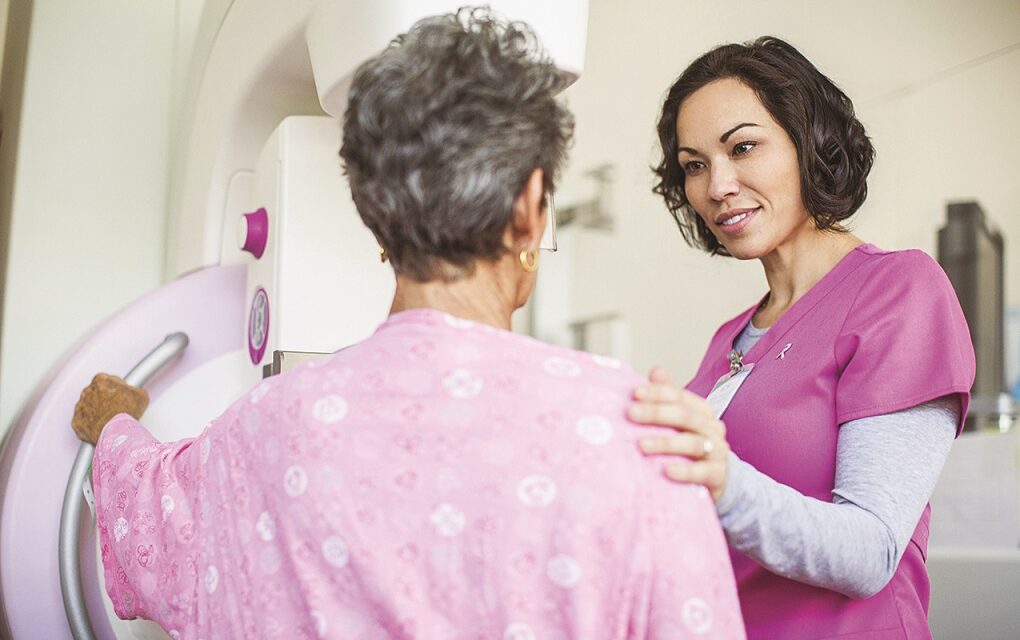Updated Breast Cancer Screening Recommendations

Healthcare screenings save many lives each year by detecting diseases early and when they are most treatable. Breast cancer screening guidelines are changing as researchers and healthcare providers learn more about the disease. The following guidelines reflect the recommendations of the United States Preventive Services Task Force (USPSTF) for 2024.
- Women should start regular mammograms at age 40. The USPSTF previously recommended that women in their 40s make an individual decision with their clinician on whether to begin screening, based on their personal needs and preferences. The new recommendation the Task Force issued in 2024 shifted from encouraging women to start screening between the ages of 40 and 50, based on their own individual decisions, to recommending that all women begin getting screened at the age of 40.
- Screening mammograms should be scheduled every other year for women aged 40 to 74. Some organizations recommend annual mammograms for women, making it essential for women to discuss screening with their physicians. The American Cancer Society (ACS) recommends yearly mammograms for women aged 45-54.
- The USPSTF emphasized the need for further research into the benefits of breast ultrasound and MRI for women with dense breasts. Women identified as having dense breasts should consult their doctors about the latest information on ultrasounds and MRIs, and women under age 40 might find these imaging methods useful.
- Additional Considerations. Women with a family history of breast cancer should discuss possible earlier screening with their physicians. Those with genetic mutations should follow specific screening guidelines tailored to their individual risk, according to Medscape.
The USPSTF could not make specific recommendations for breast cancer screenings in women under age 40 and those aged 75 and older due to a lack of sufficient studies in this age group.
Since USPSTF recommendations can change, women should review these guidelines in conjunction with advice from other organizations and collaborate with their healthcare team to determine the best screening plan tailored to their individual needs. For more information, visit www.bcrf.org, www.uspreventiveservicestaskforce.org, and www.cancer.org/cancer/breast-cancer/screening-tests-and-early-detection.html.









